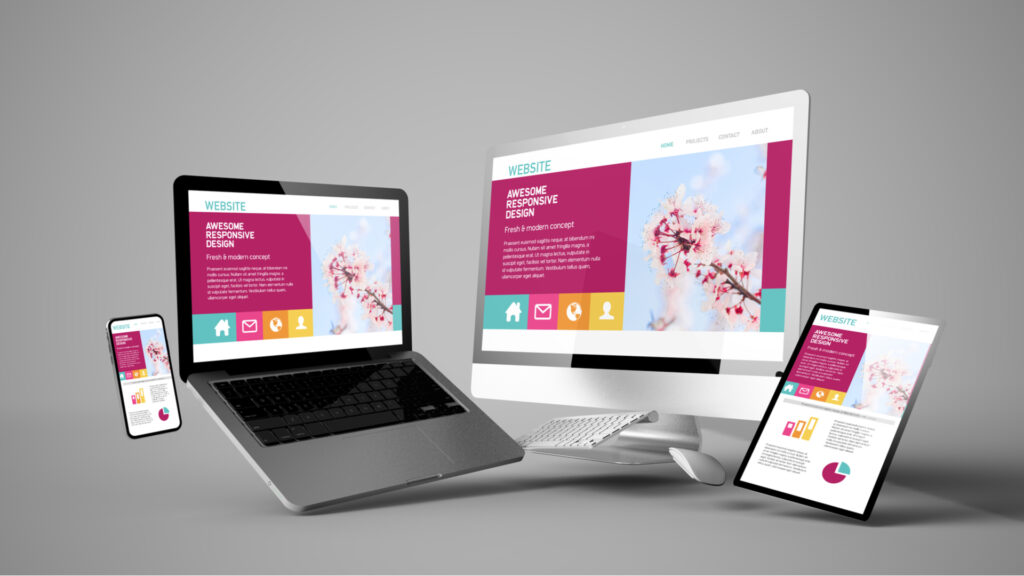In the era of digital transformation, having a website is no longer optional—it’s a necessity for any business aiming to thrive and stay competitive. Whether you’re running a local shop, a service-based company, or an e-commerce store, your website acts as the digital face of your brand. In this blog, we’ll explore the importance of having a website, how it benefits your business, and why it’s a critical investment for long-term success.
website importance, benefits of a website, why a business needs a website, website for small business, digital presence.
1. First Impressions Matter: Your Website is Your Digital Shopfront
Your website often serves as the first interaction potential customers have with your business. In today’s fast-paced world, where consumers make snap judgments, a professional, user-friendly website can create a lasting impression.
A well-designed website:
- Reflects your brand’s values and professionalism.
- Builds trust and credibility with visitors.
- Provides potential customers with the information they need to take action.
Without a website, you risk being overlooked by the majority of consumers who search online before making purchasing decisions.
2. Expands Your Reach Beyond Boundaries
One of the greatest benefits of a website is its ability to reach audiences far beyond your physical location. Whether you’re targeting local customers or aiming for a global market, a website breaks geographical barriers and makes your business accessible 24/7.
For small businesses, this expanded reach can be a game-changer, enabling them to compete with larger companies by leveraging online visibility.
3. Boosts Your Business’s Credibility
In an era where consumers rely heavily on online research, businesses without websites are often perceived as less credible. A website gives you a platform to showcase your expertise, share customer testimonials, and highlight your achievements.
By displaying certifications, awards, or case studies, you demonstrate professionalism and build trust with your audience.
4. Enhances Customer Engagement
A website is a powerful tool for engaging with your audience. Features such as live chat, contact forms, and blog content allow you to interact with visitors, answer their questions, and provide valuable insights.
Moreover, a website enables you to:
- Collect feedback through surveys or reviews.
- Share updates and promotions with a wider audience.
- Build an email subscriber list for ongoing communication.
This engagement not only fosters stronger relationships with your customers but also drives loyalty and repeat business.
5. Acts as a Hub for Digital Marketing Efforts
Your website is the foundation of your digital marketing strategy. All your online marketing efforts—be it search engine optimization (SEO), social media advertising, or email campaigns—lead back to your website.
Here’s how it works:
- SEO Optimization: A well-optimized website increases your visibility on search engines, helping you attract organic traffic from people searching for products or services you offer.
- Content Marketing: Blogs, articles, and other content hosted on your website establish your authority in your niche and drive more visitors to your site.
- Paid Advertising: Landing pages on your website are the focal points of your ad campaigns, converting traffic into leads or sales.
6. Cost-Effective Marketing and Branding
Compared to traditional marketing methods like print ads or billboards, a website is a cost-effective way to promote your business. With a one-time investment in website development, you can continually update and expand your site to align with your business goals.
Your website also serves as a branding tool, allowing you to:
- Showcase your unique selling points.
- Communicate your brand story.
- Highlight your mission, vision, and core values.
7. Provides Valuable Customer Insights
A website equipped with analytics tools like Google Analytics offers valuable insights into your audience’s behavior. You can track metrics such as:
- Website traffic and sources.
- Most viewed pages and content.
- Customer demographics and preferences.
These insights help you refine your marketing strategies, understand your audience better, and make data-driven decisions to grow your business.
8. Keeps You Competitive
In today’s digital landscape, not having a website puts your business at a significant disadvantage. Your competitors likely have a strong online presence, making it easier for them to capture market share.
A website ensures you stay in the game by providing a platform to showcase your unique offerings and attract potential customers.
9. Adapts to Changing Consumer Behavior
Consumer habits are constantly evolving, with more people relying on online searches to find businesses. A website allows you to adapt to these changes, ensuring you remain accessible to your target audience.
Mobile-friendly designs, online booking systems, and e-commerce capabilities further enhance the user experience, meeting the demands of tech-savvy consumers.
10. Future-Proofs Your Business
As technology continues to advance, having a website positions your business for future growth. It acts as a scalable platform where you can integrate new technologies, expand your offerings, and reach new markets.
Whether it’s adding an online store, implementing AI chatbots, or creating virtual experiences, your website serves as the foundation for innovation.
Conclusion
In today’s digital-first world, the importance of a website for your business cannot be overstated. It’s your gateway to building credibility, expanding your reach, engaging with customers, and staying competitive. Whether you’re a small business or a large enterprise, investing in a professional website is a step toward long-term success.
Don’t let your business fall behind. Embrace the benefits of a website and unlock its potential to elevate your brand in the digital landscape. If you haven’t already, start building your website today—it’s the smartest investment you can make for your business.




